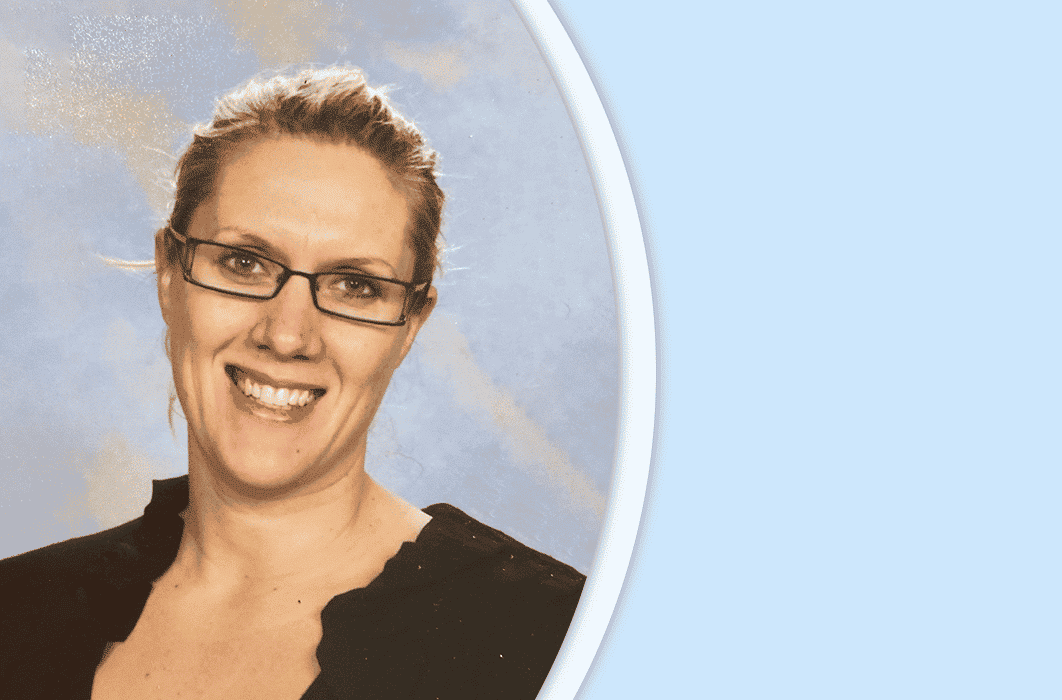Shelley McGorman
School Partnerships Consultant
Shelley McGorman is a passionate educator dedicated to literacy. Armed with a love of reading and education sparked by her own school experience, Shelley has developed a deep understanding of the importance of literacy over her 26-year career. Here, she tells of the joy of working with like-minded educators and celebrating the “small wins” every day.

How long have you worked for MultiLit?
What inspired you to get into education?
I have always loved working with children. I loved school. I think that was my early inspiration for seeking a career in education, even if I didn’t know it then! I have fond memories of my wonderful teachers, who themselves had such a love of working with children. I have particularly fond memories of my primary school librarian. She grew and supported my love of reading and always had a pile of books on hand for me to explore. This was also supported by my parents, who clocked up many kilometres taking me to and from the local library.
I was fortunate to grow up within a nurturing environment both at home and at school, where being with people and helping others was the way we did life! I think all of that laid the foundations that led to a 26-year career in education.
Tell us about your background and experience
Given I knew at a fairly young age I wanted to be a teacher, I completed high school and went on to study at the University of South Australia the following year to complete my Bachelor of Education – Primary.
Early on, I did many relief teaching days across Adelaide and picked up various short-term contracts. At the time this was challenge but, looking back, this gave me a solid grounding to develop into the educator I have become. This allowed me to experience diverse settings and communities and learn from a variety teachers and leaders across many schools, which really gave me a sense of what is great about teaching.
I was drawn towards literacy through my personal love of reading but also through a professional understanding of the fundamental importance of teaching students to read. I always looked for opportunities to develop my professional understanding of teaching reading through attending workshops, reading articles and publications, exploring different methods and approaches to the teaching of reading, and taking on additional responsibilities within schools to lead literacy at a whole school level.
Reflecting on this now, I think I knew then that there was a gaping hole in the way we were teaching reading at schools. My teacher training and a good chunk of my classroom teaching in literacy was informed by the Balanced Literacy/Whole Language approach. It didn’t come close to working for all children, only a few of the lucky ones. I remember there were many days that I left the classroom feeling like I had let children down because my instruction wasn’t grounded in the science of reading. This became the catalyst for where I am right now.
Over the last 10 years, I committed to building my knowledge and capacity in evidence-based best practice. This led to me having a number of roles in the literacy space, such as learning support, literacy lead teacher and intervention coordinator, which afforded me the opportunity to provide the best possible conditions, grounded in scientific evidence, for students and teachers alike to thrive.
I also held a position as a Strategic Leader with the Department for Education, where I supported a number of schools to enhance and improve Learning Design, Assessment and Moderation practices.
What are some of the key responsibilities in your role?
My role as School Partnerships Consultant aligns with an extensive program spanning all aspects of literacy instruction and intervention. This includes the delivery of workshops for schools investing in MultiLit programs. Workshops are something I particularly love. I really value the opportunity to work alongside educators to provide them with extensive knowledge of our programs, the science of reading and the evidence-based approach that underpins our programs.
What is particularly rewarding for me is knowing that the building of educator knowledge and understanding, through the implementation of any of our programs, is ultimately going to have a positive impact of children and older learners.
The School Partnerships role allows me to have ongoing professional relationships with trainees and schools. It’s an opportunity to provide support and guidance beyond training, which is special about MultiLit. There is nothing better than hearing from a previous participant or school, of the high levels of engagement, enthusiasm and, most importantly, the success stories that flow from implementation of our programs.
What is the best thing about working directly with teachers?
I feel I am giving educators a gift through my professional development role with MultiLit! I love feeling that shared passion and commitment educators at all levels have for working with children and young learners. It is quite special. Personally, it brings me so much joy to be working with like-minded educators. I love hearing about the small wins, the progress, the success stories.
What's the one thing you wish more people knew about literacy?
I think knowledge of the brain, and its role in learning to read. Research by Stanislas Dehaene in this space is extraordinary and provides all of us – not just educators – with such important insights into the why, the how and the when of learning to read.
From an educational perspective, teaching children to read is the most empowering and important thing we can do for them. We can’t leave it to chance. The science is clear, we need to embrace this collectively to ensure we are doing what must be done to afford children and young learners this fundamental right.
Get to know more of our team here.